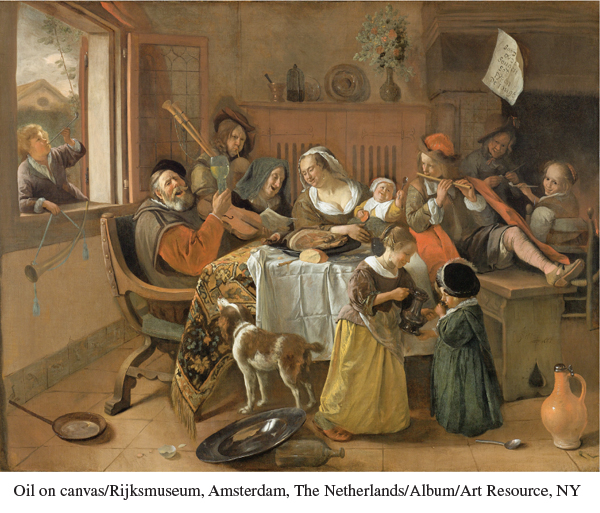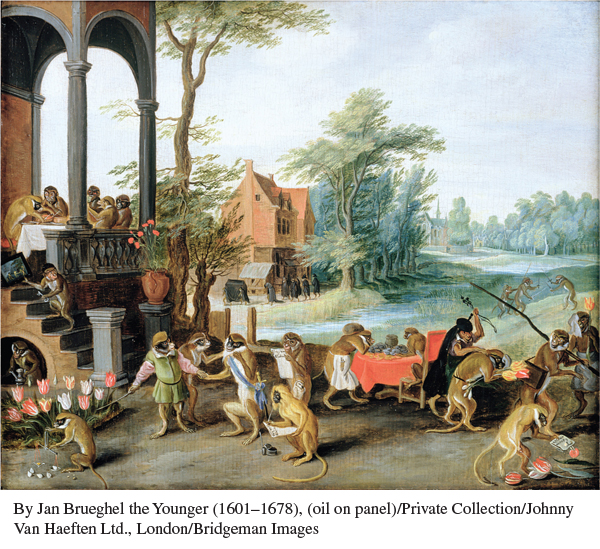A History of Western Society: Printed Page 497
A History of Western Society, Value Edition: Printed Page 482
A History of Western Society, Concise Edition: Printed Page 499
The Dutch Republic in the Seventeenth Century
In the late sixteenth century the seven northern provinces of the Netherlands fought for and won their independence from Spain. The independence of the Republic of the United Provinces of the Netherlands was recognized in 1648 in the treaty that ended the Thirty Years’ War. In this period, often called the “golden age” of the Netherlands, Dutch ideas and attitudes played a profound role in shaping a new and modern worldview. At the same time, the United Provinces developed its own distinctive model of a constitutional state.

Rejecting the rule of a monarch, the Dutch established a republic, a state in which power rested in the hands of the people and was exercised through elected representatives. Other examples of republics in early modern Europe included the Swiss Confederation and several autonomous city-
In each province, the Estates appointed an executive officer, known as the stadholder, who carried out ceremonial functions and was responsible for military defense. Although in theory the stadholder was freely chosen by the Estates and was answerable to them, in practice the strong and influential House of Orange usually held the office of stadholder in several of the seven provinces of the republic. This meant that tensions always lingered between supporters of the House of Orange and those of the staunchly republican Estates, who suspected that the princes of Orange harbored monarchical ambitions. When one of them, William III, took the English throne in 1688 with his wife, Mary, the republic simply continued without stadholders for several decades.
The political success of the Dutch rested on their phenomenal commercial prosperity. The Dutch originally came to dominate European shipping by putting profits from their original industry — herring fishing — into shipbuilding. They boasted the lowest shipping rates and largest merchant marine in Europe, allowing them to undersell foreign competitors (see Chapter 14). In the seventeenth century global trade and commerce brought the Dutch the highest standard of living in Europe, perhaps in the world. Salaries were high, and all classes of society ate well. A scholar has described the Netherlands as “an island of plenty in a sea of want.” Consequently, the Netherlands experienced very few of the food riots that characterized the rest of Europe.10

The moral and ethical bases of Dutch commercial wealth were thrift, frugality, and religious toleration. Although there is scattered evidence of anti-